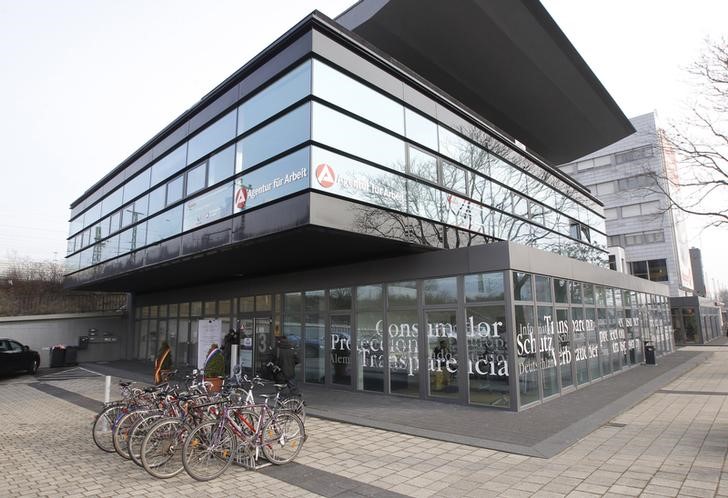BERLIN (Reuters) - The extent of the take-up of Germany's short-working-time regulations varies widely across the economy, a survey by the Ifo research institute showed, with nearly complete uptake in gastronomy and almost none at law firms.
Short-time work is a form of state aid that allows employers to switch employees to shorter working hours during an economic downturn to keep them on the payroll. Its use is intended to stop immediate shocks such as the coronavirus crisis from turning into mass unemployment.
Unemployment surged in April despite the measure, rising by 373,000 over the course of a single month, with the jobless rate climbing to 5.8% from 5.0%. By April 26, companies had made requests for 10.1 million people to be placed on short-time work.
According to Ifo's survey, 99% of employees were on short time in the catering sector, which has been all but shut down by anti-infection social-distancing measures, and 97% of staff in hotels, which have been hit by the suspension of tourism.
Short-time rates are above 90% in the airline, travel bureau, clothing and leather manufacturing sectors, and above 80% in the creative economy and in gyms and fitness studios.
But other sectors have proven much more resilient: only 30% of staff in the chemicals sectors are on reduced hours, only 21% among food makers, 14% in the healthcare sector, and professional services providers like law firms, tax advisers and auditors had placed only 3% on reduced hours.
Energy providers, sewage management companies and medicine makers had no short-timed staff whatsoever.
